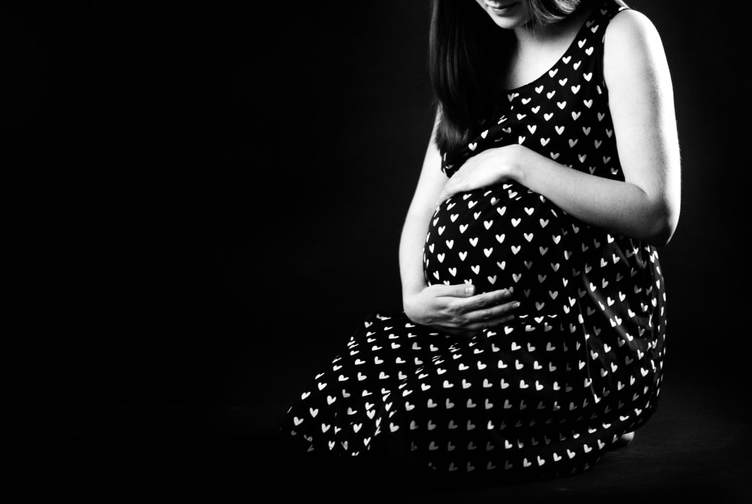|
By Jennifer Rollin, MSW, LCSW-C Certain aspects of recovering from an eating disorder are often not talked about enough. Some publications share stories of intense struggles, followed by a triumphant rise to full recovery. These stories are truly great as they inspire hope for those who are still struggling, however often they do not highlight details of the recovery journey.
One of the aspects of eating disorder recovery that is often not discussed, is that often people may feel worse before they start to feel better. I share about this aspect of recovery not in an effort to cause you to want to ‘give up,’ but rather to encourage you to keep fighting-even when your eating disorder is yelling at you to ‘throw in the towel.' For many people, there is a stage of recovery where they have stopped using many of their behaviors (and if weight restoration was indicated, they have weight restored), however the thoughts are still very loud. This can be incredibly challenging as loved ones may think that you are ‘doing so much better,’ and you might struggle to understand why you feel ‘so bad’ despite taking recovery actions. The thing is that your eating disorder was likely (in part) a way that you were attempting to cope with difficult thoughts and feelings. Once, you are not relying as much on eating disorder behaviors-it's natural those thoughts and feelings will come up to the surface. Additionally, your eating disorder will say whatever it needs to, in order to keep itself alive. So, it makes sense that as you are not following with what your eating disorder is telling you to do, that the thoughts may start to build in intensity. It’s important to remember though, that this stage of recovery where you aren’t using behaviors as much and feel the same or potentially even worse-is only temporary. The longer that you continue to take pro-recovery actions and refuse to follow the actions that your eating disorder suggests, the more that the neural pathways in your brain will start to change. Many people in recovery struggle with ‘black and white thinking,’ and it’s so easy to say, ‘well I feel worse (or the same) so I may as well give up on this whole recovery thing.’ However, I wouldn’t do this work, if this stage of recovery lasted forever. It won’t and you will get to the point where things feel so much better and you will be free from the constant thoughts about food and your body. Please don’t give up before you get there. You can always go back to your eating disorder, but what you know exactly where that will lead. What if you tried something different this time? It will be so worth it. To those of you who are in the midst of this intense emotional storm. To the ones who are fighting to take recovery actions, despite a voice yelling at you in your head. I am sending so much compassion your way. You are so incredibly brave and I’m proud of you. The Eating Disorder Center is a premier outpatient eating disorder therapy center in Rockville, Maryland. We specialize in helping teens and adults struggling with anorexia, binge eating disorder, and bulimia, and body image issues. We also offer therapy for obsessive compulsive disorder. We provide eating disorder therapy in Rockville, MD, easily accessible to individuals in Potomac, North Potomac, Bethesda, Olney, Silver Spring, Germantown, and Washington D.C. We provide eating disorder recovery coaching via Zoom to people worldwide. Connect with us through our website at www.theeatingdisordercenter.com By Jennifer Rollin, MSW, LCSW-C We live in a society where “You look great, have you lost weight?” is unfortunately seen as a normal greeting. Recently, I went to a party where comments about people’s bodies and weight seemed to be the initial topics of conversation. I overheard numerous conversations congratulating others for their weight loss or thinness. I truly believe that people often do not intend to hurt others by exclaiming, “You look so thin, that’s awesome,” or “Did you lose weight? How great,” or even, “You got bigger.” In light of that, the following are three reasons why you should never comment on someone’s weight. 1. You cannot tell anything about a person’s health, happiness or life circumstances based on their weight. We live in a society where often weight loss is perceived as “good” and weight gain is seen as “bad.” This fundamental assumption is inherently flawed. Weight loss and gain tells you nothing about a person’s health, happiness, habits, or life circumstances. The person that you are praising for their weight loss could be suffering from a life-threatening eating disorder, cancer, depression, grief, the diet-binge cycle, intense self-hatred, or numerous other issues. The person that you are judging for their weight gain may be happy, healthy, in recovery from an eating disorder, finally letting go of the diet mentality, etc. Being thin is not “good” and being fat is not “bad.” There shouldn’t be this sense of morality surrounding weight. Additionally, our bodies are meant to change throughout our lives. This is part of being a human being and nothing to be ashamed of. All bodies are good bodies, but more importantly people’s worth is not based upon their weight or shape. 2. Weight-related comments can be highly triggering for people. There are so many examples of how weight-related comments can trigger people. For instance, we know that for those in recovery from an eating disorder, weight-related comments can be incredibly triggering and can serve to fuel their disorder or cause a relapse. It’s also important to note that you cannot tell who has an eating disorder based on their physical appearance. People with eating disorders come in all shapes and sizes. Let’s say that someone has simply lost weight on a diet and you applaud them on their “weight loss.” Since we know that diets have around a 95% “failure” rate when it comes to maintaining weight loss in the long-term, this “praise” will only serve to make them feel worse when they inevitably gain the weight back. This can serve to perpetuate the diet-binge cycle, which has been shown to have highly detrimental effects in regards to people’s health and happiness. 3. It shifts focus away from things that are actually important. I am sometimes struck by how I can be among a group of ambitious successful women who have amazing careers and are raising children, yet the conversation is primarily focused around dieting and weight-related concerns. These are women who have achieved incredible things and yet they are choosing to focus on something so trivial and meaningless. I do not blame them, as this is largely a cultural and societal issue. Body image issues and diet-culture impact people of all genders. However, I do think that particularly as women it’s important to note that a focus on these issues often keeps us from “playing big” in other areas of our lives. Diet-culture and a fixation on thinness actually rose in prominence around the time that women began to gain more political rights in our society. Additionally, It’s sad to me that people will approach someone that they haven’t seen in a long time and the first comment that they think to make is about the individual’s weight. What if instead you asked them about their passions, their relationships, and how they are doing in general? There are so many more important and interesting things to focus on than a person’s weight or eating habits. What to Say if Someone Comments on Your Weight The following are some simple suggestions for what you can say if someone comments on your weight. “You look great! Did you lose weight?” - I choose not to focus on my weight. There are so many more interesting things about me. - No clue. I don’t weigh myself. So how has your family been? - I feel great and that’s all that matters. - Nope. I just look and feel great. - That question honestly makes me pretty uncomfortable, as I try not to focus on my weight as a barometer of my worth. “Have you gained weight since I last saw you?” - I’m happy and healthy, thanks for noticing. - Is weight something that you focus on? - No clue. I don’t tie my self-worth to a number on a scale. - I’m trying not to focus on my weight, so I’d rather you not comment on it. - Yep! (with a smile). - I don’t think that’s an appropriate question. My body is nobody else’s business. Ultimately, your worth and your value do not come from your appearance, the number on a scale, or your body. Your value lies in the kindness that you extend to others, the spark in your eyes when you laugh, the way that you pursue your passions, and your relationships. You are enough, just as you are. The Eating Disorder Center is a premier outpatient eating disorder therapy center in Rockville, Maryland. We specialize in helping teens and adults struggling with anorexia, binge eating disorder, and bulimia, and body image issues. We also offer therapy for obsessive compulsive disorder. We provide eating disorder therapy in Rockville, MD, easily accessible to individuals in Potomac, North Potomac, Bethesda, Olney, Silver Spring, Germantown, and Washington D.C. We provide eating disorder recovery coaching via Zoom to people worldwide. Connect with us through our website at www.theeatingdisordercenter.com Guest Post By Lauren Hill Dealing with body image during pregnancy and during the postpartum period is difficult for any woman. But when you are in recovery from an eating disorder, adjusting to and dealing with all the bodily changes during and after pregnancy can be completely overwhelming.
As a new mother, and someone who struggled with an eating disorder for many years, I know the struggle of dealing with body image during pregnancy and postpartum very well. At the time I became pregnant, I had four solid years of full recovery under my belt, and thought that my pregnancy would be a breeze body-image wise. Unfortunately, that was not the case. I still struggled with seeing my clothes get too tight, watching my body change, and feeling all of the physical effects of pregnancy. Postpartum, it was difficult to look at my body when it still appeared to be pregnant for a long time, even though it wasn’t. In our society, we are so often bombarded with images and news stories of celebrities “bouncing back” from childbirth and debuting their seemingly perfect bikini bodies on the beach or on the red carpet just weeks after giving birth. It seems that they were never even pregnant at all. We feel the pressure to give birth to our babies and then jump on the bandwagon of diets and exercise plans to lose the baby weight and “get our bodies back”. I am here to tell you that what we see in the media is a lie, and the last thing we need to be focusing on in the early days of motherhood is dieting and punishing our bodies for giving us the most precious gift we will ever receive. If you are pregnant, are a new mother, or plan to become pregnant in the future, here are a few ideas to think about and ways to navigate the pregnancy/postpartum body image challenges: 1. Focus on Body-Acceptance and Body-Appreciation When our bodies are changing, whether it is due to pregnancy or not, it can seem impossible to imagine getting to a place where we can say, “Wow, I LOVE my body”. Instead of focusing on getting to a place of body-love, it can help to rather focus on getting to a place of body-acceptance and body-appreciation. During my pregnancy, it was very helpful to shift my focus from my body’s appearance to the amazing things my body was doing to grow and nourish my baby girl. When I would start to feel uneasy about how my body looked, I would start thanking it for taking such good care of the little baby inside me. After my daughter was born, I began to focus on appreciating my body for being able to produce milk to nourish her, and also just focusing on my caring for my daughter rather than focusing on my body’s perceived flaws. Here are some examples of things you might think or say to yourself: During pregnancy: “I accept that my body is doing what it needs to do to grow a healthy baby.” “I know that my body needs to grow and change to accommodate this little human inside of me.” “I appreciate my body for allowing me to grow and nourish this baby.” Postpartum: “My body just went through growing and birthing a baby and needs time to recover.” “It took my body nine months to expand to accommodate my growing child, and it is going to take even longer for it to get used to its new normal.” “I accept my body just as it is, even though it is different.” “I am so grateful to my body for giving me this precious gift and I won’t punish it by trying to make it look like it used to.” 2. Clean Out the Closet and Go Shopping EARLY! Another thing that is very important is to make sure that you pack up, put away, or get rid of clothes that are already fitted or will become too small BEFORE THEY BECOME TOO SMALL! Even though I knew my clothes were going to get too tight and no longer fit my pregnant body, it was still distressing when I would put them on and notice that they were tighter or had become too small. Go ahead and shop for looser fitting clothes for the earlier days of pregnancy and get some maternity clothes in your closet early so you have options when you need them! (**If finances are a concern, there are a lot of consignment stores that sell maternity clothing, as well as folks on platforms like Facebook Marketplace looking to get rid of their maternity clothing for free or at a low price!) After giving birth, our bodies need time to recover. I was still wearing some maternity clothes six months after giving birth! I also knew that my pre-pregnancy pants would be tight, so I went shopping for new ones and did not even try on the old ones! Make sure that you don’t rush to get back into pre-pregnancy clothes and focus on wearing clothes that fit your body right where it is. That may mean wearing looser fitting clothes or buying a larger size in pants in order to feel comfortable! 3. Focus on your values! Throughout my pregnancy and postpartum journey, I had many moments where I would start thinking about how unhappy I was with my body. In those moments, turning my attention to my values was SO helpful. What is important to me? My daughter, my family, my recovery, my job, my spirituality, joy, and peace. If I continued to focus on my body and wanting to change it, my energy and attention would be taken away from everything I value. Instead of spending energy trying to change your body, focus on what matters to you and make decisions that bring you closer to THOSE things. 4. Get support!! I cannot stress this one enough. After taking a break from therapy for several years, I decided during my pregnancy to go back. Not because things were terrible, but because I knew that I wanted to do everything I could to keep myself in the best shape mentally and emotionally that I could. Whether your support team includes professionals or not, find your “tribe”. These people could be friends, family members, partners, a local mom’s group, church members, or anyone else that you can think of to include. The early days of motherhood are TOUGH and it is so important to have people around who can be a listening ear, a shoulder to cry on, or just someone to hold the baby while you shower and take a nap! You see, you don’t need to get your body “back”. Your body never left! This body is STILL my body. It is strong. It is capable. My body’s so-called 'imperfections' tell the story of the amazing things it has done for me, and so do yours. In fact, I am learning to love and appreciate my body more now than I EVER did before because it gave me the greatest gift I could ever have hoped for, my sweet baby girl. Lauren Hill is a counselor in Wilmington, NC who specializes in working with clients struggling with eating disorders, addiction, depression, and anxiety. She is also in long-term recovery from an eating disorder and volunteers as a Walk Coordinator for the National Eating Disorders Association. She also serves as a social media intern for Jennifer Rollin MSW, LCSW-C. (Follow her for recovery inspiration on Instagram @lauren_hill_lpca) |
The Eating Disorder CenterWe are a premier outpatient eating disorder therapy center in Rockville, Maryland. Archives
July 2024
Categories |



 RSS Feed
RSS Feed